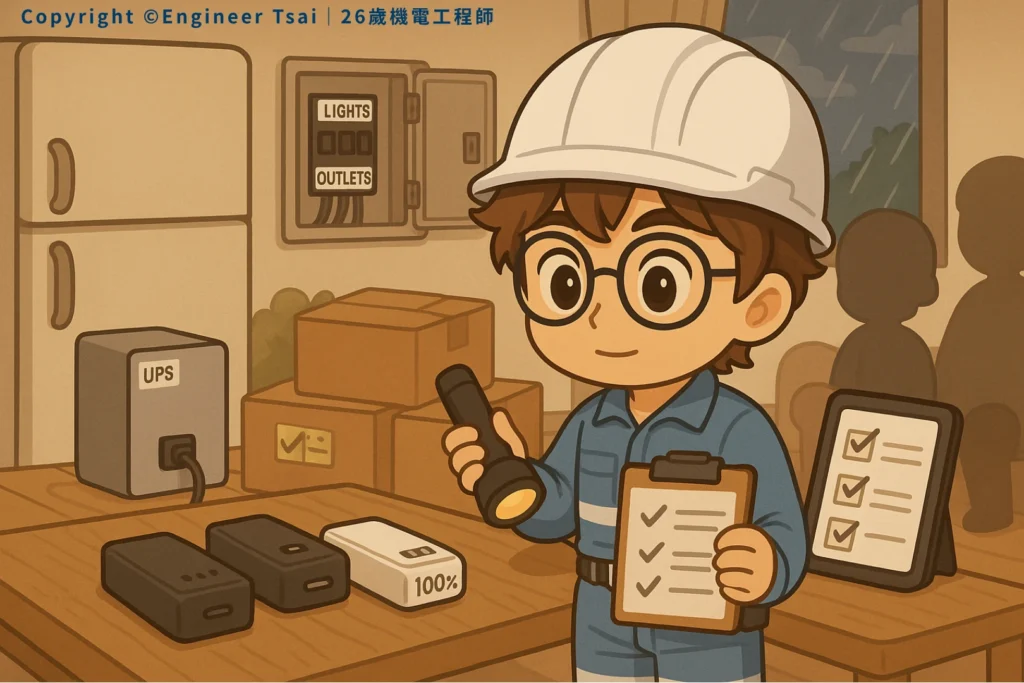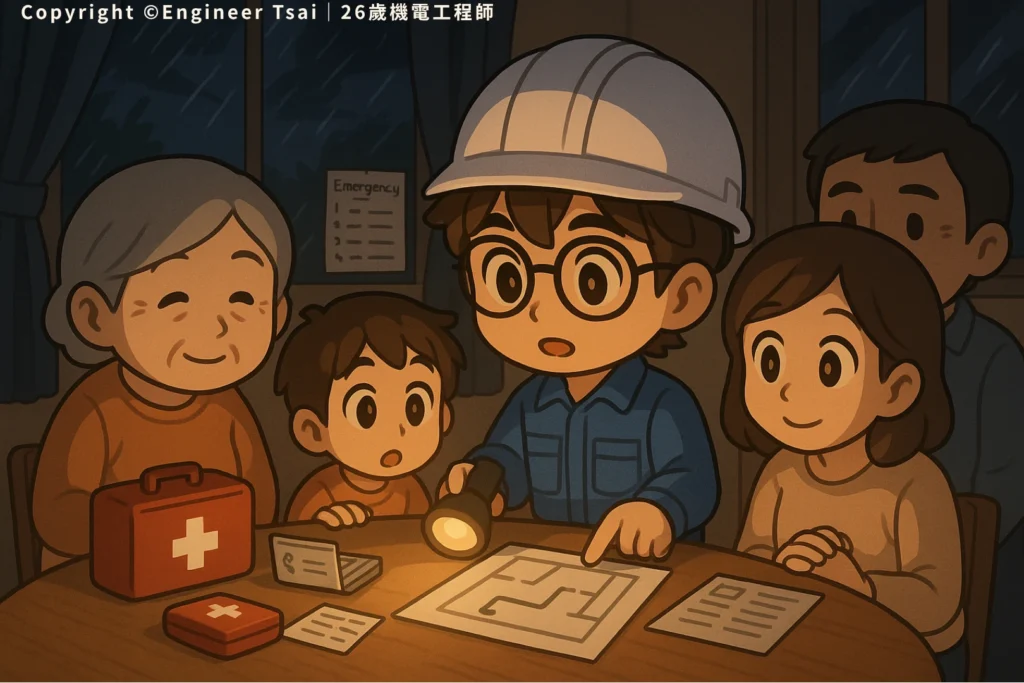Ever been there?
The moment the news says a hurricane ’s on the way, your whole house feels different.
Mom starts stocking up on ramen and water, Dad’s digging through drawers looking for flashlights, and the kids are all excited about “maybe getting a day off from school.”
But let’s be honest—everyone’s a little on edge, worrying you’ll forget something important.
The truth is, staying safe isn’t about luck—it’s about the little things you check off ahead of time.
This isn’t just another copy-paste checklist you’ll never look at again.
I’m sharing the “easy-to-miss but absolutely crucial” stuff that really makes a difference. Follow along, check your own home as you read, and you’ll be way less stressed no matter what this storm season brings.

1. Power Outages: Are You Ready If the Lights Go Out?
Biggest worry on hurricane night?
Yup—losing power.
And it’s way more than just sitting in the dark with a candle.
Think about it:
- All the food in your fridge and freezer? Gone if you can’t keep it cold.
- No Wi-Fi, dead phones—how do you get updates or call for help?
- Got someone in your home who relies on medical devices? No way you can risk not having backup power.
What you really want to check:
- Got a backup battery or UPS for the fridge, your router, or anything else you can’t lose?
- Are your power banks charged up and ready? One for each family member is ideal.
- Where are your flashlights or headlamps? Is there one on every floor, maybe even every bedroom? (And have you checked the batteries in the last six months?)
- Is your breaker box labeled clearly? Seriously—during a blackout, you don’t want to be flipping random switches.
Pro Tip:
“Five minutes of prep now will save you five hours of panic when the storm hits.”
2. Water & Food: Don’t Wait Until You’re Out
Let’s be real: after every big storm, it’s either the water gets shut off, or the store shelves go empty overnight.
If your water tank’s running low, or your local grocery gets picked clean, it’s way too late to start planning.
What to check:
- Drinking water: At least a gallon per person per day—aim for three days’ worth.
- Washing/flushing: Fill up the tub or some big buckets, just in case.
- Canned food, instant noodles, snacks—make sure you’ve got enough for everyone, and yes, don’t forget a can opener!
- Portable gas stove or grill (with extra fuel)—so you can still cook even if the power’s out.

3. Doors, Windows & Home Structure: Little Gaps, Big Problems
Old houses? Drafty windows? Broken seals on the doors?
Those little details turn into big headaches when a hurricane hits.
One stray flowerpot left on the porch can turn into a flying missile if you’re not careful.
What to check:
- Seals on your windows and doors—add duct tape or boards if anything looks loose or cracked.
- Bring in everything from your porch, yard, or balcony. Don’t risk it—if it’s loose, put it inside.
- Make sure your gutters and drains are clear—one clogged drain, and you might be swimming in your living room.
4. Emergency Supplies: The Stuff You Hope You’ll Never Need
- First aid kit: Bandages, ointment, painkillers, and any prescription meds you need.
- Cash (in small bills): ATMs and credit card readers might be down.
- Copies of important documents (in a waterproof bag): IDs, insurance, whatever matters most.
- Whistle, backup glasses, formula/diapers if you have kids—plan for everyone’s unique needs.
5. Family Game Plan: The Real Meaning of “Safe”
If you lose power, or—worst case—need to leave in a hurry, does everyone know what to do?
Have you talked about a meeting spot, or who’s in charge of what?
Some things that make a big difference:
- Try a “blackout drill.” Cut the lights for an hour at night—see what you’re missing, and fix it before it’s an emergency.
- Write out important phone numbers and emergency contacts on paper. If your phone’s dead, you’ll be glad you did.

One Last Thing—A Motto Worth Remembering
“It’s always easier to prep than to fix things after the fact.”
A little effort now means a whole lot less stress when the wind picks up and the rain starts coming sideways.
Final Thoughts
Hurricane are part of life, but panic and scrambling don’t have to be.
Start your prep now—not when the news is showing flooded neighborhoods.
Every step you take today is peace of mind for your family when the weather gets wild.
📌 Recommended Reading:
🔹 Why Is Electrical Grounding Important? Safety Tips & Best Practices
The basics of grounding—why it matters, and how it keeps your family safe when storms roll in.
🔹 Homeowner’s Guide: What to Check First When You Lose Power
Step-by-step troubleshooting to keep your home safe and your power restored after a storm.
🔹 Beginner’s Guide: Five Electrical Tools That Make Home Maintenance Easy
Stock up now, so you’re never scrambling during a blackout.
How does your family get ready for hurricane season?
Ever had a close call, or learned a tip the hard way?
Drop your best advice or stories in the comments—let’s help each other stay safe, no matter what Mother Nature throws our way!


